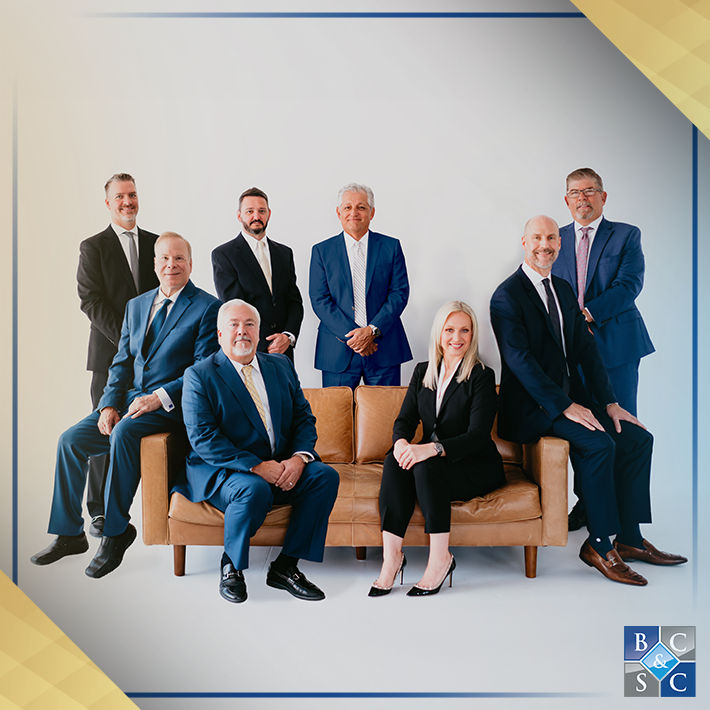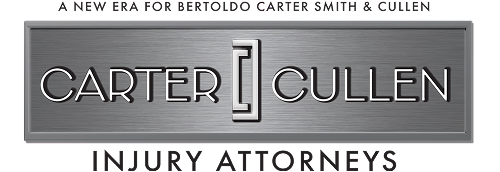Workers’ Compensation Claims
Las Vegas Workers’ Compensation Lawyer
Fighting for Injured Workers Throughout Nevada
What Kinds of Injuries & Diseases Are Covered Under Nevada Workers’ Compensation?
The simple answer is every kind of injury or disease is covered if you can show that it arose while you were performing your normal job duties. If you are injured in an on-the-job accident or while carrying our work-related duties, such as lifting a heavy box, those injuries will always be covered as a compensable industrial injury. However, you will need to have a qualified medical professional confirm that your injury is directly related to your employment.
For example, if you are legal secretary and are required to type all day long, and you see a physician who diagnoses you with carpal tunnel syndrome, this will be considered a compensable occupational disease. The important thing to remember is to always report any accidents promptly. Although Nevada law allows seven days to report an accident, the longer you wait to report it, the great the chances the insurer will deny your workers’ compensation claim. With an occupational disease, you should report it to your employer once a physician advises you that your condition is due to your employment.
Workers’ compensation accident and injuries can include, but are not limited to:
- Slip and fall accidents, including neck and spine, shoulder, and knee injuries
- Construction accidents, including falls and crushed-by or -against injuries
- Repetitive motion accidents, including hearing or vision loss and joint/muscle damage
- Factory accidents, including digit loss and amputations
- Workplace violence
- Traumatic brain injuries
- Wrongful death
How to Start a Workers’ Compensation Claim in Nevada
In order to start a claim, you must first report the injury or disease to your employer and fill out a C-1 Notice of Injury form, listing ALL body parts that are affected. After completing that form, you should immediately see a physician to document your injuries. You must visit an authorized medical service provider as dictated by the workman’s compensation policy.
At the doctor’s office, you should be given a C-4 form to fill out what happened and, again, list ALL body parts that are injured. The physician will fill out the bottom portion and send it to the insurer to begin the process of accepting or denying your claim. If you have any questions, you should seek advice from a Las Vegas workers’ compensation attorney who can assist you with your claim.
Are All Nevada Employers Required to Carry Workers’ Compensation Insurance?
Yes; as outlined in the Nevada Division of Industrial Relations’ Workers’ Compensation Employer Guide, all Nevada employers with one or more employees must carry workers’ compensation insurance.
If a company is found in violation of this law they may be subject to:
- Administrative fines up to $15,000
- Premium penalties
- Full financial responsibility for any injuries that occur while uninsured
- Business closure until insurance is obtained
- Criminal penalties for claims resulting in substantial bodily harm or death
What If an Employer Requires Employees to Obtain Their Own Workers’ Compensation Insurance?
What If I Am Hurt at Work, but No One Witnesses the Accident?
Nevada is a no-fault workers’ compensation state, which means you do not have to prove your employer was negligent or otherwise at fault in order to pursue workers’ compensation. This allows employees protection from injury, even if they are hurt without a witness to corroborate the accident.
Like all laws, there are exceptions to the typical application.
When it comes to workers’ compensation, employees are ineligible for benefits if it is proven that the injured employee:
- Was under the influence of alcohol or drugs at the time of the accident
- Deliberately caused the accident that resulted in injury
What Type of Workers’ Compensation Benefits Can I Receive?
Under Nevada workers’ compensation laws, eligible employees who are hurt at work are entitled to compensation for:
- Medical Treatment: This benefit covers the cost of medical treatment necessary for the injured employee to recover from the work-related injury or illness. It includes doctor visits, hospitalization, surgeries, prescription medications, physical therapy, and other medically necessary treatments.
- Temporary Total Disability (TTD): If the injured employee is unable to work while recovering, they may receive temporary disability benefits. These benefits typically cover a portion of the employee’s lost wages during the recovery period.
- Temporary Partial Disability (TPD): In cases where the employee can return to work but at a reduced capacity, they may receive temporary partial disability benefits, which compensate for the wage difference.
- Permanent Partial Disability (PPD): If the work-related injury or illness results in a permanent impairment but does not render the employee totally disabled, they may be entitled to permanent partial disability benefits. The amount is determined based on the nature and extent of the impairment.
- Permanent Total Disability (PTD): In cases where the employee is permanently and totally disabled and unable to perform any type of gainful employment, they may receive permanent total disability benefits. These benefits often continue for the duration of the disability.
- Vocational Rehabilitation: Vocational rehabilitation services may be provided to injured workers who are unable to return to their previous job due to the injury. These services aim to help the employee acquire new skills or find alternative employment. Vocational rehabilitation may include job retraining, educational programs, job placement assistance, and other support services to enhance the injured worker’s employability.
What Are Workers’ Compensation Death Benefits?
Why Was My Claim Denied?
Workers’ compensation benefits may be denied for various reasons, and the specific factors can vary depending on the jurisdiction and the circumstances of the claim. However, some common reasons for the denial of workers’ compensation benefits include:
- Late Reporting of the Injury: Failing to report a work-related injury or illness promptly can lead to a denial of benefits. It’s crucial for employees to inform their employers as soon as possible after an incident occurs.
- Failure to Seek Prompt Medical Attention: Delay in seeking medical treatment for a work-related injury can be a reason for denial. Employers and insurance carriers may question the severity of the injury or whether it is genuinely work-related if medical attention is not sought promptly.
- Disputes Regarding the Nature of the Injury: If there is a disagreement between the employee, employer, and/or insurance carrier about whether the injury or illness is work-related, it can result in a denial of benefits. This may include disputes about the cause, timing, or location of the injury.
- Pre-existing Conditions: Employers or insurers may argue that the injury is not solely work-related but is a result of a pre-existing condition. Resolving the question of whether the workplace aggravated or worsened a pre-existing condition can be a complex process.
- Missed Filing Deadlines: Workers’ compensation claims often have specific deadlines for reporting the injury, filing a claim, or appealing a denial. Missing these deadlines can result in the denial of benefits. It’s essential for employees to be aware of and adhere to these timelines.
- Failure to Follow Medical Treatment Plans: If an injured worker does not comply with the prescribed medical treatment plan or fails to attend medical appointments, it may be grounds for denying benefits. Employers and insurers may argue that non-compliance contributed to a lack of improvement or prolonged disability.
- Employer Disputes or Investigations: Employers may dispute the validity of a workers’ compensation claim, citing evidence that the injury did not occur at work or that the employee’s actions contributed to the injury. Investigations into the circumstances surrounding the injury may influence the decision.
- Injuries Resulting from Misconduct or Intoxication: If the injury occurred while the employee was engaged in misconduct or was under the influence of drugs or alcohol, benefits may be denied. Workers’ compensation typically does not cover injuries sustained while violating workplace policies or while impaired.
Why Do I Need an Attorney?
Workers’ compensation claims involve considerable paperwork, strict deadlines, medical coverage mandates, employer interaction, insurance representative interviews, and potential bureaucratic delays. With our skilled attorneys by your side, we can help you seek the best medical care and provide direction on the best ways to heal fully before being ordered back to work. When you are hurt at work, your livelihood is at stake every second you are losing wages. We can help you and your family focus on the best approach to pursuing the maximum coverage and financial recovery without delays, confusion, or anxiety.
Here are the benefits of choosing our firm to represent you:
- Expertise in Workers’ Compensation Laws: Our team of experienced attorneys specializes in workers’ compensation law. We have an in-depth understanding of the relevant laws, regulations, and precedents, allowing us to navigate the complexities of your case with precision.
- Guidance Through the Claim Process: We provide comprehensive guidance throughout the entire workers’ compensation claim process. From initial claim filing to potential appeals, we ensure that all necessary documentation is properly submitted and deadlines are met.
- Maximizing Benefits: Our goal is to maximize the benefits you receive. We assess the full scope of your injuries and losses to determine the appropriate compensation, covering medical expenses, lost wages, rehabilitation costs, and any other eligible benefits.
- Negotiating with Insurers: Insurance companies may attempt to minimize payouts or deny claims. We skillfully negotiate with insurers on your behalf, leveraging our knowledge and experience to secure fair and just compensation for your injuries.
- Building a Strong Case: We gather and compile all relevant evidence to build a strong case in your favor. This includes medical records, witness statements, expert testimonies, and any other necessary documentation to support your claim.
- Handling Appeals and Disputes: If your workers’ compensation claim is denied or disputed, we are prepared to handle appeals. Our legal team is well-versed in the appeals process and will diligently pursue the best possible outcome for your case.
- Protecting Your Legal Rights: We ensure that your legal rights are protected throughout the entire process. Our attorneys are committed to advocating for you and will take the necessary steps to address any issues that may arise during the course of your claim.
- Peace of Mind: By enlisting our services, you gain peace of mind knowing that a dedicated legal team is handling your case. This allows you to focus on your recovery while we work tirelessly to secure the compensation you deserve.
Call our accomplished Las Vegas, Nevada workers’ compensation attorneys to schedule a free consultation. We will start your claim filing process immediately and allow you to rest easy knowing your workman injury case is in good hands.
Contact Us Today
Request a Free Consultation
Our Promise to You
Why You Can Count on Our Firm
Experience You Can Trust
Legacy of Client Satisfaction
Client-Centered Approach
Proven Record of Results
Client testimonials
Real Stories From Real Clients
"Thank you seems woefully inadequate”
“Seamless and caring service.”
“They truly care about their clients.”
“Handled my case excellently.”
“Best with phenomenal work ethics.”
“Great settlement and so happy with results!”
“Utmost in professionalism”
“They always made me feel like a member of their family and not just a client.”

A PROVEN RECORD OF RESULTS
Millions of Dollars Recovered for Our Clients
$100 MILLION
Product Defect And Fatality From Helicopter Crash
$30 MILLION
Fatality/burn Disfigurement From Helicopter Crash
$19.5 MILLION
Brain Damage From Motor Vehicle Accident
$18.5 MILLION
Wrongful Death From Aircraft Accident
$16 MILLION
Motor Vehicle Accident, Mild Traumatic Brain Injury
$12 MILLION
Negligence Security Leading To Sexual Assault
$10.8 MILLION
Brain Injury, Premises Liability
$10 MILLION

